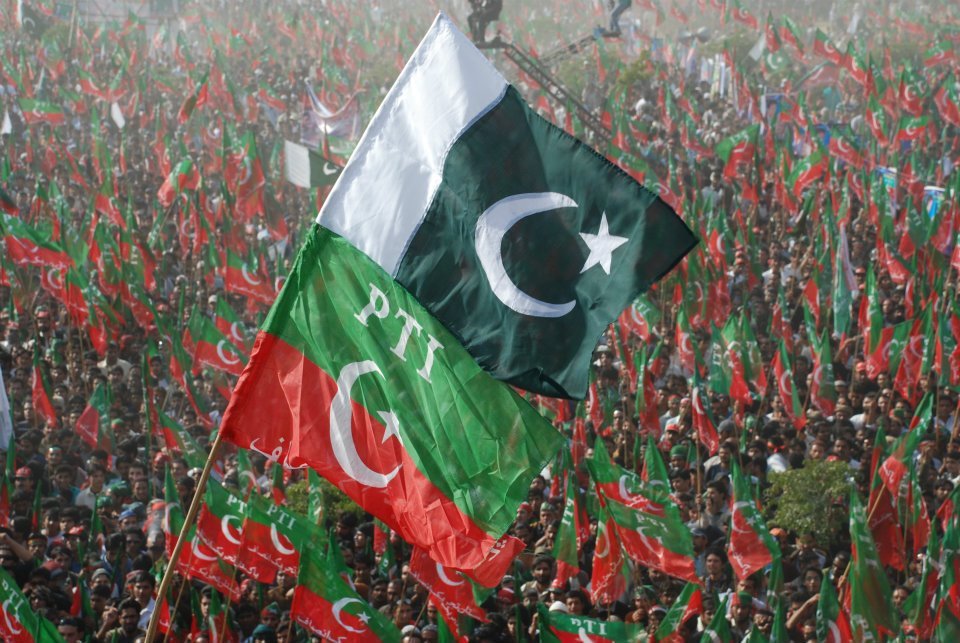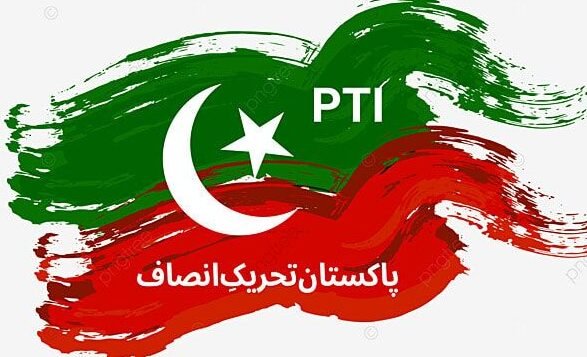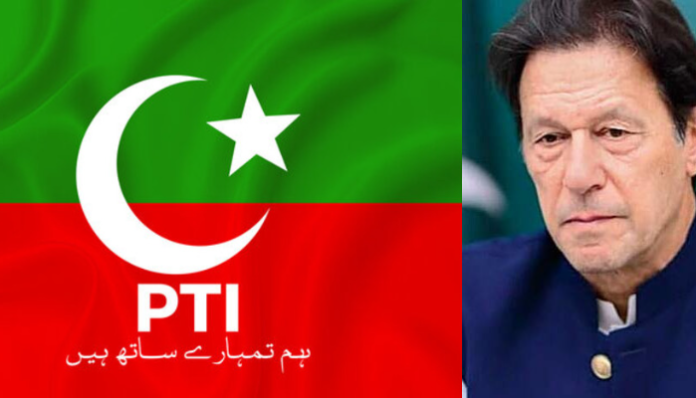Introduction
Role of Pakistan Tehreek-e-Insaf in Pakistani Politics. Pakistan Tehreek-e-Insaf (PTI), translated as the “Pakistan Movement for Justice,” has emerged as a significant political force in Pakistan since its inception in 1996. Founded by former cricketer-turned-politician Imran Khan, PTI aimed to transform the country’s political landscape through transparency, accountability, and justice. This article delves into PTI’s role in Pakistani politics, examining its rise, policies, governance, and the impact it continues to have on the political discourse.
The Foundation of PTI: A Vision for Change
Imran Khan’s Transition from Sports Icon to Political Leader
Imran Khan’s transformation from a celebrated cricketer to a political leader began in the mid-1990s. After leading Pakistan to victory in the 1992 Cricket World Cup, Khan turned his attention to philanthropy and social issues, culminating in the establishment of PTI in 1996.
PTI’s core ideology revolved around:
- Accountability and anti-corruption
- Justice for all citizens
- Economic reform and development
- Merit-based governance
Early Struggles
The early years were marked by electoral defeats and limited support. PTI struggled to make an impact in the political arena dominated by the Pakistan Muslim League (PML-N) and the Pakistan Peoples Party (PPP). Despite setbacks, Imran Khan remained persistent, slowly building a grassroots base among youth and the urban middle class.
PTI’s Rise to Prominence
The 2011 Lahore Jalsa: A Turning Point
One of the most pivotal moments in PTI’s journey came on October 30, 2011, when the party held a massive rally at Minar-e-Pakistan in Lahore. The gathering attracted hundreds of thousands, marking PTI’s emergence as a major player.
Key Highlights:
- Mobilization of youth and first-time voters
- Use of social media and digital platforms
- Emphasis on anti-corruption and national revival
- Role of Pakistan Tehreek-e-Insaf in Pakistani Politics
2013 General Elections
In the 2013 general elections, PTI emerged as the third-largest party by popular vote and formed a government in Khyber Pakhtunkhwa (KP). This allowed PTI to demonstrate its governance model at the provincial level.
PTI in Power: The 2018 General Elections
A Landmark Victory
In the 2018 elections, PTI won 116 out of 272 National Assembly seats, allowing it to form a coalition government at the federal level. Imran Khan became the 22nd Prime Minister of Pakistan.
Major Promises Made:
- Creation of 10 million jobs
- Construction of 5 million homes for the underprivileged
- Eradication of corruption
- Institutional reforms and police restructuring
- Role of Pakistan Tehreek-e-Insaf in Pakistani Politics
Key Reforms and Initiatives
Ehsaas Program
Launched to reduce inequality, invest in people, and lift lagging districts. It became one of the largest social safety nets in the country’s history.
Health Cards
The Sehat Sahulat Program was introduced, offering health insurance to low-income families, aiming for universal healthcare.
Digital Governance
PTI promoted e-governance to curb corruption and increase transparency.
Billion Tree Tsunami
Environmental conservation was a hallmark initiative, starting in KP and later expanded nationwide.
Challenges Faced
Despite ambitious reforms, PTI faced significant challenges:
- Economic Crisis: Balance of payments issues, inflation, and a depreciating rupee
- Political Opposition: Intense resistance from PML-N, PPP, and other parties
- Judiciary and Establishment Relations: Navigating complex civil-military dynamics
PTI and Accountability: Successes and Criticism
National Accountability Bureau (NAB)
PTI empowered the NAB to act against corrupt elements across the board. While this won praise from some quarters, critics accused the government of selective accountability.
Judicial Activism
PTI’s tenure witnessed heightened judicial involvement in politics. While this helped some anti-corruption efforts, it also led to debates about overreach.
PTI’s Influence on Political Discourse
Youth Engagement
PTI’s biggest contribution may be its ability to politically engage young Pakistanis. Through digital media, the party:
- Encouraged political debate
- Promoted civic responsibility
- Created a politically aware new generation
- Role of Pakistan Tehreek-e-Insaf in Pakistani Politics
Social Media Dominance
PTI’s media wing pioneered the use of platforms like Twitter, Facebook, and YouTube, often setting the tone for political discussions.
Criticisms and Controversies
Governance Concerns
Critics argue that PTI struggled to fulfill its lofty promises. The economic slowdown, rising debt, and inflation tarnished its image.
Allegations of Authoritarianism
Some observers pointed to increased censorship, crackdown on dissent, and a shrinking space for media and civil society during PTI’s tenure.
Civil-Military Relations
PTI was initially perceived as being close to the military establishment. However, by the end of its tenure, tensions surfaced, contributing to political instability.
PTI Post-2022: The Ouster and Aftermath
No-Confidence Motion
In April 2022, PTI’s government was ousted via a no-confidence vote in the National Assembly, bringing the Pakistan Democratic Movement (PDM) into power.
Imran Khan’s Narrative
Following his removal, Imran Khan launched a robust public campaign, alleging foreign conspiracy and establishment betrayal. His rallies drew massive crowds, showcasing continued public support.
Legal Battles and Arrests
Imran Khan faced numerous legal cases, culminating in arrests and trials. Despite legal hurdles, his popularity remained significant, especially among the youth.
PTI’s Future in Pakistani Politics
Election Strategy
PTI has signaled strong intentions to return to power through elections, focusing on:
- Anti-status quo messaging
- Highlighting economic mismanagement by successor governments
- Promising institutional reforms
- Role of Pakistan Tehreek-e-Insaf in Pakistani Politics

Digital Activism
With traditional media becoming increasingly restricted, PTI has leaned into digital platforms to spread its message and organize supporters.
Grassroots Mobilization
PTI’s emphasis on constituency-level mobilization, especially in Punjab and KP, will play a crucial role in future electoral outcomes.
Expert Opinions and Public Perception
Political Analysts’ Take
Political commentators note that PTI reshaped the political narrative in Pakistan. While governance may have faltered, its impact on political consciousness is undeniable. Role of Pakistan Tehreek-e-Insaf in Pakistani Politics
Real-Life Testimonials
Rashid Ali, a university student in Lahore, shares: “PTI made politics interesting for our generation. We feel like our voices matter.”
Fatima Khokhar, a healthcare worker, appreciates the Sehat Card initiative: “It helped us during a medical emergency when we couldn’t afford hospital bills.”
Conclusion: PTI’s Enduring Legacy
PTI’s journey from a one-man party to leading the federal government is a remarkable chapter in Pakistani political history. While it faced its share of criticism, governance hurdles, and controversies, the party succeeded in shaking up entrenched power structures and energizing a politically passive youth. Role of Pakistan Tehreek-e-Insaf in Pakistani Politics
Whether or not PTI returns to power in the next general elections, its role in shaping political discourse, increasing voter participation, and challenging the status quo ensures its continued relevance.
For many Pakistanis, PTI remains a symbol of hope, reform, and resistance against corruption—and its story is far from over.
Role of Pakistan Tehreek-e-Insaf in Pakistani Politics
PTI role in governance, Imran Khan political journey, PTI youth engagement, PTI accountability reforms, PTI vs PMLN PPP, PTI 2018 elections, PTI future politics, PTI controversies, PTI digital media strategy, PTI Sehat Card impact
Featured Snippet Optimized Q&A:
What is the role of PTI in Pakistani politics? PTI, founded by Imran Khan, has played a pivotal role in reshaping Pakistani politics by promoting anti-corruption, youth engagement, and governance reforms. It held federal power from 2018 to 2022 and continues to influence political discourse through digital activism and grassroots mobilization. Role of Pakistan Tehreek-e-Insaf in Pakistani Politics

